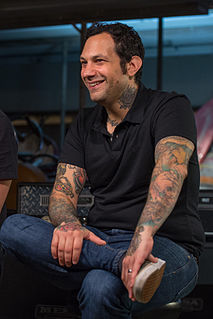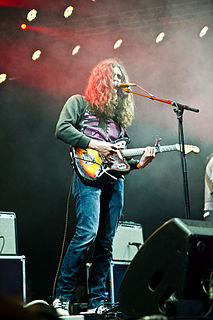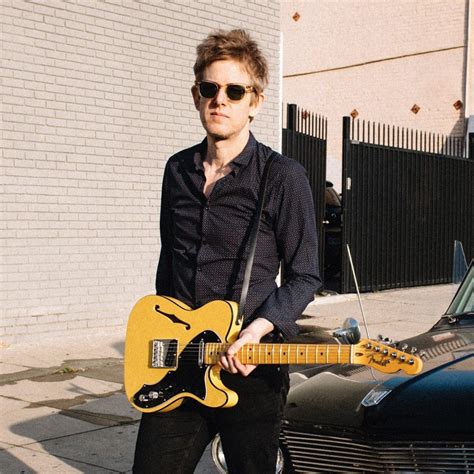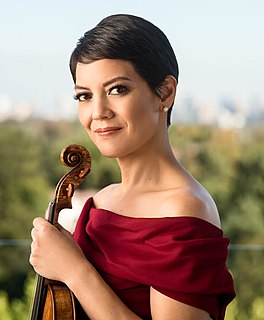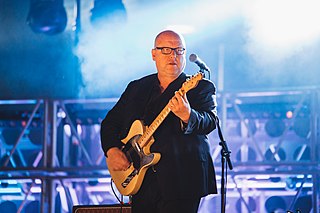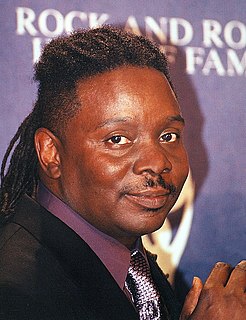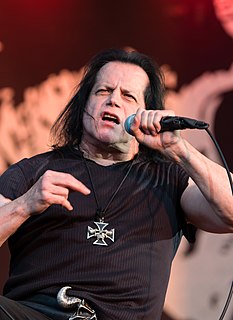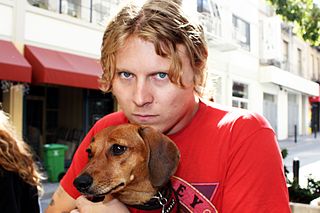A Quote by Joe Principe
I think record stores play a huge part in discovering new music. When I was growing up I would spend hours going through all the bins looking for something new that seemed interesting to me and that could relate to what I was listening to at the time. This is why I want to support National Record Store Day.
Related Quotes
Record stores are the backbone of the recorded music culture. It's where we go to network, browse around, and find new songs to love. The stores whose staff live for music have spread the word about exciting new things faster and with more essence than either radio or the press. Any artist that doesn't support the wonderful ma and pa record stores across America is contributing to our own extinction.
My music has always been sort of in-between categories. Sometimes record stores - back when there were record stores - they'd put my records in the country music section, but other record stores would put my records in the pop or even the rock section. As long as it's in the store somewhere, I'm OK with it.
My music has always been sort of in between categories. Sometimes record stores - back when there were record stores - they'd put my records in the country music section, but other record stores would put my records in the pop or even the rock section. As long as it's in the store somewhere, I'm OK with it.
Music is the highest art form.I still think that. I wish I was really talented in music because then I would be doing it. I felt that I could write a decent song, but it was a big struggle. It took a lot of time and effort for me, whereas a lot of my peers and other people seemed to have a much easier relationship to it. But I profoundly love music, and I still dream that I might one day try to write some new songs and record something - just for myself, to see what would happen.
Maybe I'm biased because I'm from there. It's close enough to New York but it's not swallowed up by New York's hustle and bustle. Philly's busy enough. There are tons of record stores and record-head friends and plenty of D.I.Y. shows. It's a place where people pass through and bands don't usually skip on tour. There are lots of music resources but it's not too over the top.
The idea that somebody out there is that eager to hear my music in advance can only be a good thing. But growing up, I always liked that system where "release day" was a big thing, and for bands I really liked, I'd know that date. It'd be on my calendar, and I'd go to the record store that day. Sitting down and listening to the record for the first time was a real event. I wish it was still that way, but that's not the way the world works any more.
I won't necessarily make new music because when you make a record there are these great expectations on the side of the record company who are going to produce your record, promoters that are going to do your shows. They want you to do interviews, they want you to play shows. I mean, they want it to be a campaign.
It was part of a financial situation. I could only afford records in thrift stores. Then you could find wonderful things, but now everything is a collectible. I like the recycling idea --using the stuff that people don't want anymore, and make new music out of it. There was an element of looking back and listening to your parents' records and doing something with that stuff. Sort of acknowledging the past while rejecting it at the same time.
Al Gore wanted to tell people what they could listen to and what they couldn't, what they could record. It was basically coming down to the idea that he wouldn't let anybody record any music that he didn't think you should be doing. There was going to be an organization that would tell you what you could and couldn't record.
When I hear a great new record, especially when it's by someone that I respect and admire, then a part of me is like, Why didn't I think of that? Why didn't I write that record? It makes you sick, but in a way it can be a great thing. It makes you want to go back to the lab and start writing again. Maybe it will inspire you to try a little harder.
I really like to think of each record as its own thing. So, for sure, but I hate the idea of being stuck in anything. Like I want to do a Hawkwind-style record too, or a noise rock record or a hardcore record. Why not, you know? I would just not want to keep heading too far in one direction, without pulling off and going the other way. That is what is fun for me.
